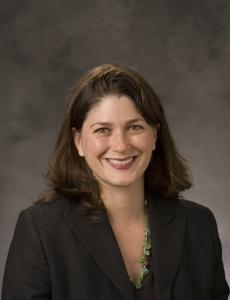
Combining local and very real risk statistics for SARS-CoV-2 infection with an exercise in imagination helped participants in a Duke University psychology study make more realistic decisions about their own risky behaviors, according a pair of new papers.
Neurobiology training faculty member Alison Adcock (pictured) is on the team of authors with companion studies out recently in Nature Aging and the Proceedings of the National Academy of Sciences.
Study participants from all over the country who had dismissed their risks of Covid-19 and those who had perhaps over-responded to the danger both rethought their personal decisions after going through the imagination exercise. Three weeks later, their attitude adjustments still held.
The experimental intervention is now being integrated into a publicly accessible data dashboard through a collaboration between the Duke team and scientists at Georgia Tech University. The project is funded by the Centers for Disease Control and Prevention to see if it could help more people properly calibrate their risks and behaviors during the pandemic.
The studies, which appear this week in the Proceedings of the National Academy of Sciences and Nature Aging, drew on established science about memory and decision-making. Full story in Duke Today
CITATIONS:
"Pairing Facts with Imagined Consequences Improves Pandemic-Related Risk Perception," Alyssa H. Sinclair, Shabnam Hakimi, Matthew Stanley, R. Alison Adcock, Gregory R. Samanez-Larkin. Proceedings of the National Academy of Sciences, Aug. 10, 2021 DOI: 10.1073/pnas.2100970118
“Imagining a Personalized Scenario Selectively Increases Perceived Risk of Viral Transmission for Older Adults,” Alyssa Sinclair, Matthew Stanley, Shabnam Hakimi, Roberto Cabeza, R. Alison Adcock, Gregory Samanez-Larkin. Nature Aging, Aug. 5, 2021. DOI: 10.1038/s43587-021-00095-7